The Best Seeds for Treating Migraines
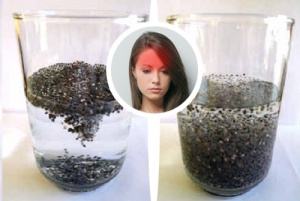

Written and verified by psychologist Valeria Sabater
We already know that maintaining a preventative diet is an important part of decreasing the amount of migraines you experience. Paying attention to your diet and adding healthy foods will make you feel much better. Would you like to know, for example, how natural seeds can help you out on this front? Find about the best seeds for treating migraines in the article below!
1. Migraines and nutrition
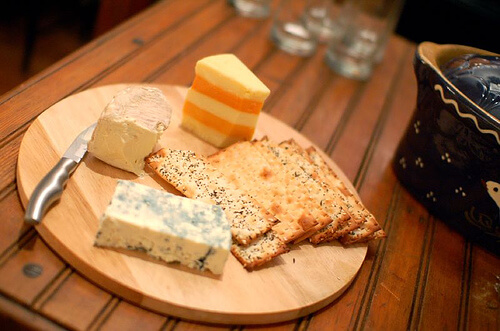
One of the proven causes of migraines is the way our body reacts to certain substances in different foods. Stress and even genetics can determine whether or not we’ll suffer from this condition.
Certain foods can act as true toxins (antigens) in our bodies, making vasodilatory substances synthesize and causing our brain arteries to swell. That is what causes the pain and suffering of migraines.
You should also know that, even when you take medication and watch your diet, you may continue to suffer occasional migraines. Why? Certain stimuli can act as triggers.
Stress, menstruation, skipping breakfast, sleeping poorly or even physical effort can lead to a migraine. Ideally, you should keep a diary of your reactions to different situations so that you can control them in the future.
Sometimes, even a strong perfume can cause you to experience a migraine, so keep all of these factors in mind. Here is a list of foods that you should most certainly avoid:
- So-called biogenic amines: amines are elements such as histamine or tyramine, which are present in lots of foods such as cheese, chocolate, wine, beer and fish conserves.
- Food additives: Do you know what monosodium glutamate is? It’s known as the fifth flavor. But in reality, it’s a compound that’s artificially added to lots of foods to give them a stronger flavor, thus making them more enjoyable to eat. And which foods have this compound? Pizza, hamburgers, candies, sweets, and, above all, Chinese food. You should also know that even tomatoes and Parmesan cheese naturally contain monosodium glutamate.
- Other foods to keep in mind: other not-so-healthy foods include canned tuna, sardines, anchovies, sausages, liver, red meat, sour kraut, soy, eggplant, tomatoes, red wine, white wine, beer, brewer’s yeast and very ripe fruits.
2. Benefits of seeds for treating migraines
Sunflower seeds
These seeds are great for anyone who suffers from migraines. Remember that you should only eat salt-free sunflower seeds. Ideally, you should have a small handful per day, or about two tablespoons. Do you want to know more about the benefits of this seed?
- Vitamin E. Its rich anti-oxidant base will help your body defend itself against toxins and harmful elements that can cause internal swelling. It purifies your body, protects your immune system and makes your cell fibers more elastic, which can help you prevent the constriction of your cranial nerves.
- Fatty acids. These are a great source of energy that will help you fight off migraines. This type of fat is also crucial to the formation of certain hormones your body needs to stay strong, while also preventing your cholesterol and triglyceride levels from increasing.
- Magnesium. You probably already know about the benefits of magnesium when it comes to preventing migraines: it improves muscle and neuronal tone, stimulating the transmission of nerve impulses and causing your muscles to relax. It also improves bone health and strengthens your cardiovascular system, helping your body to prevent cranial nerve swelling. It’s just great!
Flaxseed
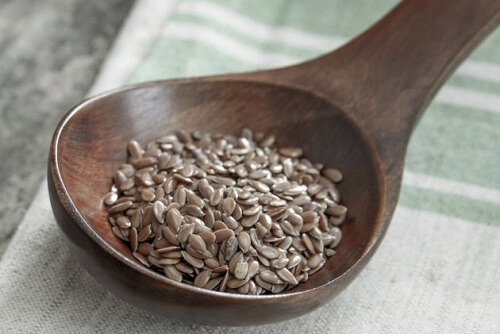
Flaxseeds are great for when you’re trying to lose weight, keep your cholesterol down, or control blood sugar levels. But did you know that they’re also great seeds for treating migraines? Try adding them to a salad and see how great they make you feel. You should have about two tablespoons per day.
- Rich in fatty acids: as we mentioned above, fatty acids such as omega 3 or omega 6 are great for alleviating migraines. In particular, flaxseed has omega 3 polyunsaturated (75%) and omega 6 (25%).
-
Vitamin E: once again, these seeds are a great source of vitamin E, which is great for our health and a huge player in preventing migraines. Try consuming about two tablespoons per day.
-
Minerals that help treat migraines: magnesium, calcium, potassium, manganese, silicon…
- Rich in enzymes that aid in digestion.
Chia seeds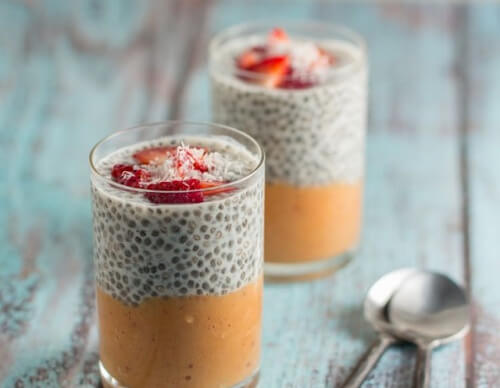
Chia seeds are known as one of the top super foods out there. Lots of athletes tend to eat chia seeds, as well as people who need nutritional supplements or others who simply want to lose weight. Also, they’re great seeds for treating migraines. Check out their benefits:
- Natural source of minerals: high levels of calcium, magnesium and zinc, all real soldiers in the fight against migraines. They also provide you with the basic nutrients you need to stay healthy.
- Natural source of omega 3 fatty acids: once again, chia seeds have this element that is so crucial in preventing migraines. It also improves your heart health and cholesterol levels, so you should always try to consume a good amount of this type of fat.
Read also:
Sesame seeds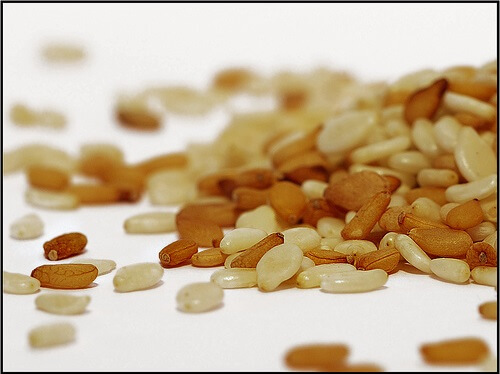
Have you tried sesame seeds? This delicious seed goes well with tons of main dishes, desserts and homemade breads. You can also consume them on their own, about two tablespoons per day. But how does this food help people who suffer from migraines?
- High magnesium levels: The high magnesium content in sesame seeds can help you prevent blood vessel spasms, which lead to migraines. In fact, many people consume sesame seeds for treating migraines on a regular basis or to prevent headaches and dizziness.
In conclusion, you can pick a different seed to eat each day as a way to supplement your current diet. About two tablespoons per day will do wonders for your health.
All cited sources were thoroughly reviewed by our team to ensure their quality, reliability, currency, and validity. The bibliography of this article was considered reliable and of academic or scientific accuracy.
- Dodick, D. W. (2014). Thunderclap Headache. In Encyclopedia of the Neurological Sciences. https://doi.org/10.1016/B978-0-12-385157-4.01102-7
- Shalaby, A. R. (1996). Significance of biogenic amines to food safety and human health. Food Research International. https://doi.org/10.1016/S0963-9969(96)00066-X
- Ixtaina, V. Y., Nolasco, S. M., & Tomás, M. C. (2008). Physical properties of chia (Salvia hispanica L.) seeds. Industrial Crops and Products. https://doi.org/10.1016/j.indcrop.2008.03.009
This text is provided for informational purposes only and does not replace consultation with a professional. If in doubt, consult your specialist.








